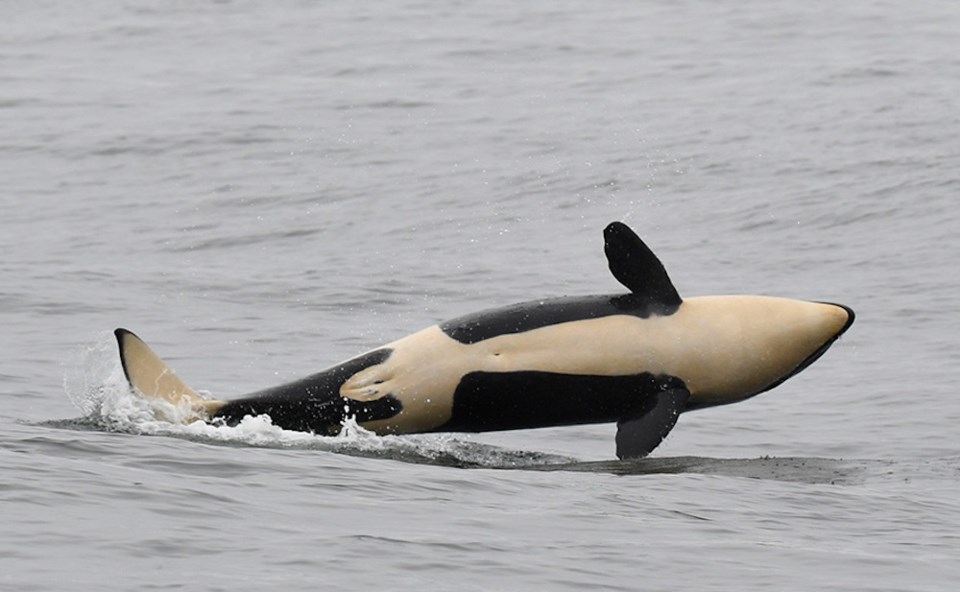Scientists were celebrating Wednesday after determining that the southern resident killer whale calf born in April is a female.
K45 was the first newborn for K-Pod since 2011, and the fact that she’s a female gives the critically endangered species a glimmer of hope.
The little one’s sex was determined by Fisheries and Oceans Canada’s Marine Mammal Conservation teams who encountered K45 with her mother, K20, and other members of the pod near Swiftsure Bank off Victoria. K20 breached, revealing her underside.
“While every new southern resident killer whale is celebrated, females are especially important as they are essential to the ongoing and future health of this endangered iconic Pacific species,” Fisheries and Oceans Canada said in a Facebook post. “Welcome to the pod little one.”
The new calf was initially spotted in July. She is the second calf for mother K20, also known as Spock, who gave birth to K39 in 2004.
The overall population of southern resident killer whales continued to decline over the past year, according to the most recent census by the Center for Whale Research, based in Washington state.
This year’s report shows the population in J- K- and L-pods declined from 74 on July 2021 to 73 as of July 1. Researchers found there were three deaths and two healthy births.
L pod has 32 members, J-Pod 25 and K-Pod just 16.
The report said two members of K pod died during the past year. K21 was last seen in late July 2021 in Juan de Fuca Strait. He was severely emaciated. K44 is also assumed to have died after a decayed body matching his description washed up on an Oregon beach.
In the mid-1990s, the southern resident killer whale population peaked at 98 animals. By 2001, the population had declined to 78 whales.
The count will be updated again on Dec. 31.
— With files from Louise Dickson



